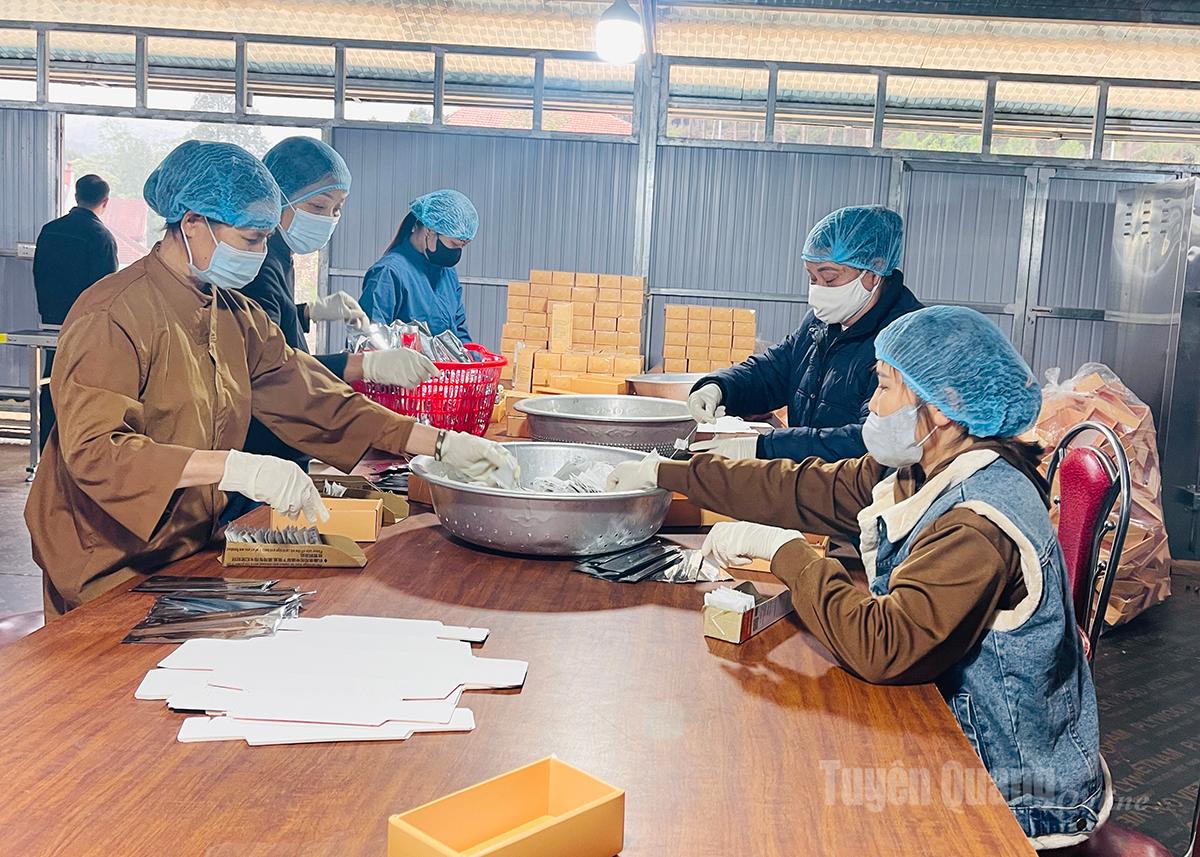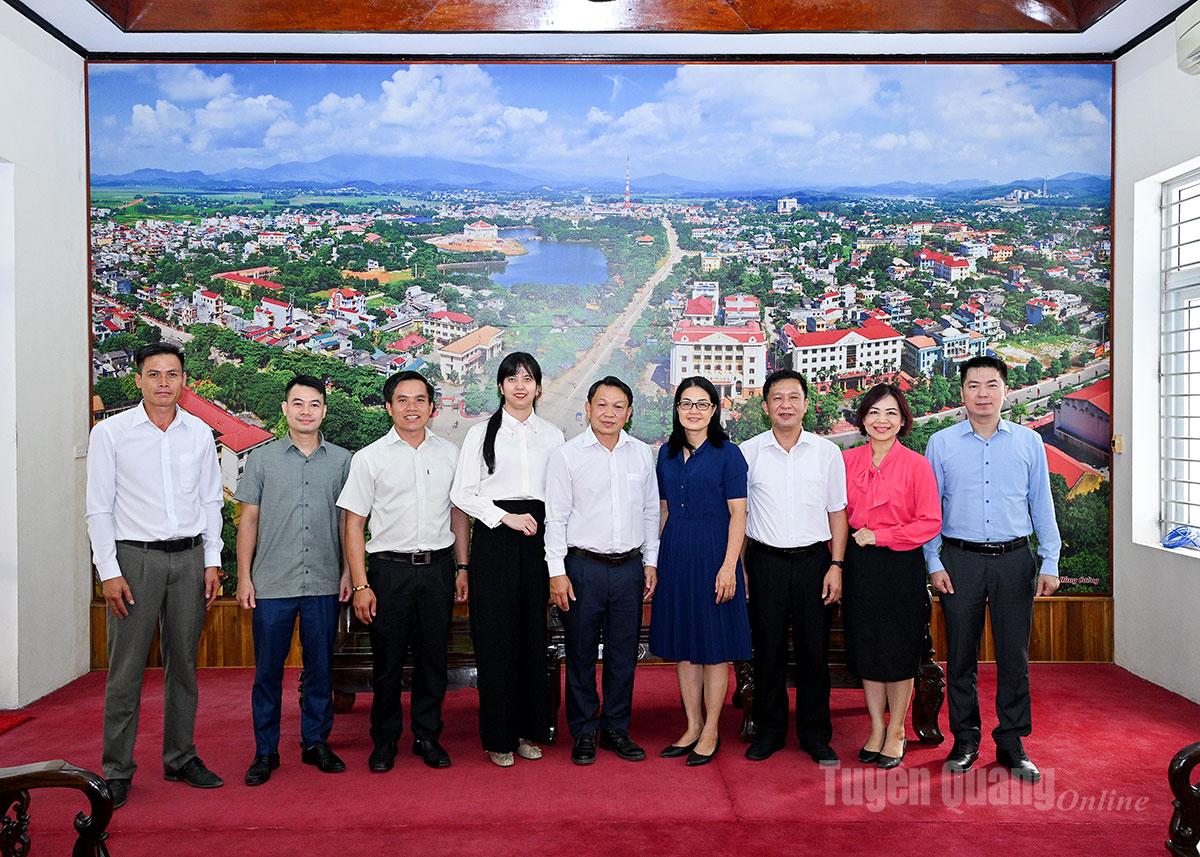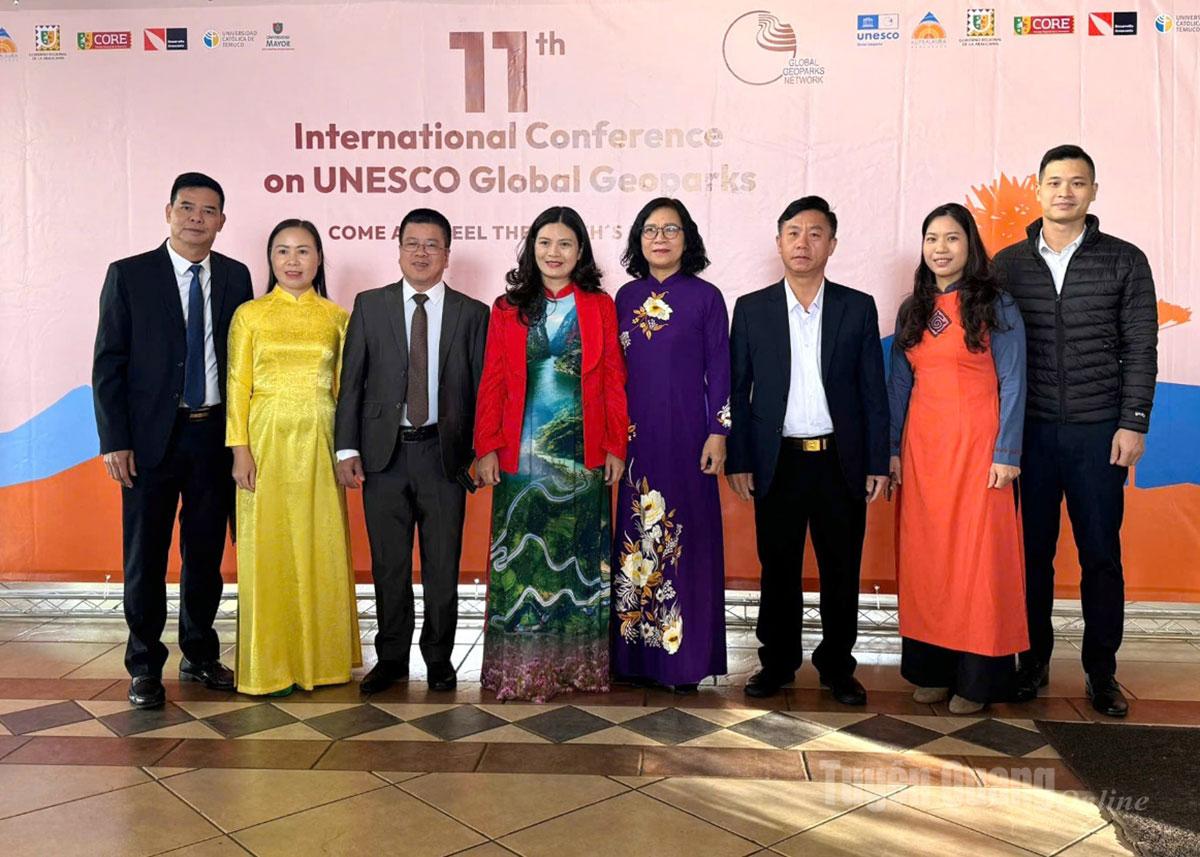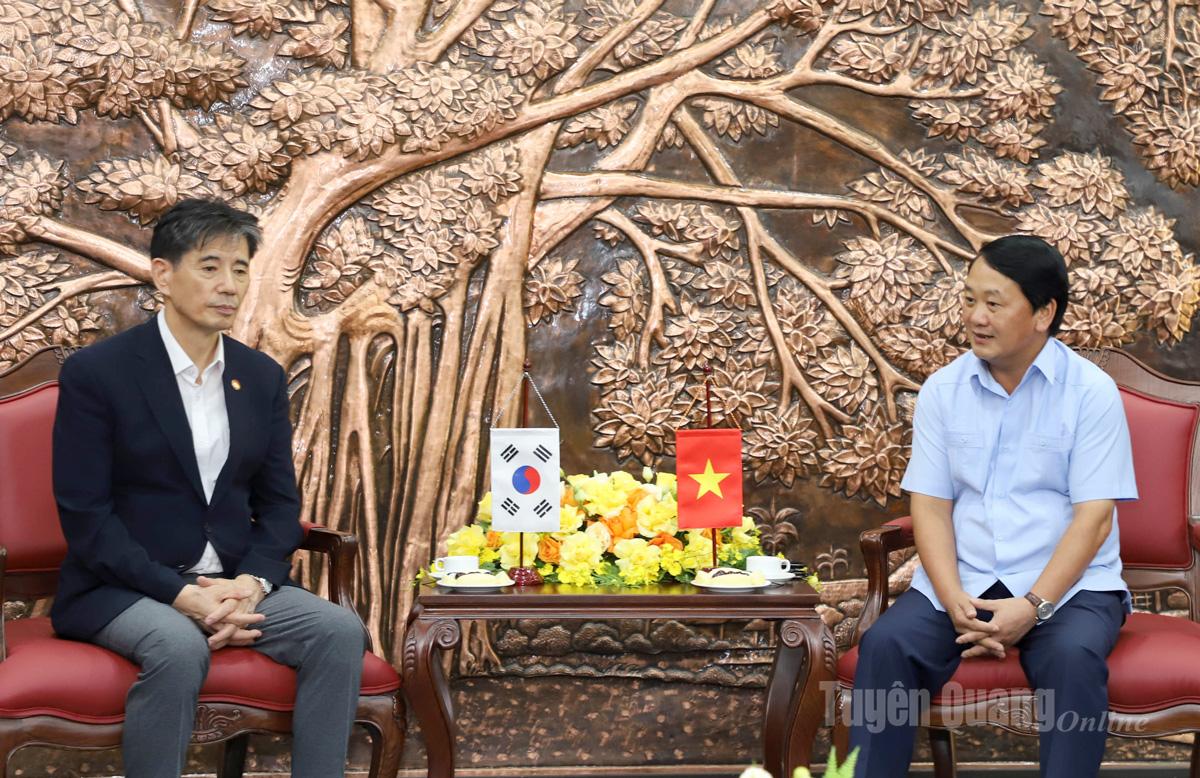Tuyen Quang Province has made significant strides in its mission to combat poverty, placing the well-being of its most vulnerable citizens at the heart of every decision. Throughout the 2020-2025 term, the province has implemented a multi-faceted approach, focusing on turning policies and resources into tangible results. This includes providing residents with durable housing, and improving access to healthcare, education, and stable employment to prevent them from falling back into poverty.
Policy Impact and Key Achievements
To execute its anti-poverty agenda, Tuyen Quang established steering committees and management boards at every administrative level, from the provincial to the grassroots. This structured approach has enhanced coordination among government agencies and social organizations, enabling more effective oversight and timely problem-solving.

Developing Shan Tuyet tea plants helps the Dao ethnic people in Thong Nguyen commune improve their income
The efforts have yielded impressive results. According to a report by the Department of Agriculture and Environment, the poverty rate in what was previously Tuyen Quang province dropped from 23.45% to 10.19% between 2021 and 2024, a reduction of 13.26 percentage points. This translates to an average annual decrease of 4.42%, exceeding the initial targets. Similarly, in the former Ha Giang province, the number of multidimensionally poor households decreased by 11,711 by the end of 2024, representing a 6.26% reduction from the previous year, also surpassing its goals. These figures underscore the successful integration of infrastructure investments, housing support, social welfare programs, and livelihood initiatives.
A key highlight of the poverty reduction efforts is the program to replace dilapidated housing. By providing sturdy homes, the province has laid the foundation for residents to "settle down" and focus on economic development. Other critical support measures include health insurance, legal aid, discounted electricity, preferential loans, and specific policies for students from low-income families and those living in particularly disadvantaged areas.
Challenges and Lessons Learned
Despite the progress, Tuyen Quang has faced a number of challenges. Ambiguousness in policy guidelines have made implementation difficult for local authorities. The overlap between national target programs has created confusion over funding and responsibilities. In some remote areas, a lack of experience among local officials in project management and policy application has hampered progress.
Drawing from these experiences, the province has learned several key lessons. The active involvement of local authorities, the Fatherland Front, and other political-social organizations is crucial for mobilizing resources and ensuring effective implementation. Granting more autonomy to communes has proven beneficial, as it allows for locally-tailored solutions, but it must be paired with robust oversight. Empowering citizens to participate in selecting projects and support measures has increased the relevance of the programs and fostered a greater sense of responsibility. Furthermore, the ability to identify and resolve issues promptly has been vital for keeping the programs on track.
Key Future Strategies
To transition from temporary relief to sustainable poverty reduction, Tuyen Quang is adopting a comprehensive strategy that integrates various policies. The province is advocating for the consolidation of overlapping regulations and the issuance of clear, actionable guidelines for individual projects. Plans are also in place to provide specialized training for local officials in project management, accounting, and community mobilization.
According to Ms. Vuong Ngoc Ha, a member of the Provincial Standing Committee and Vice Chairwoman of the Provincial People's Committee, future initiatives will focus on supporting farmers in adopting suitable crops and livestock, and connecting them to value chains. The province aims to encourage the formation of cooperatives and social enterprises, while also facilitating access to preferential loans and agricultural insurance. To protect those who are most vulnerable to falling back into poverty, a social safety net will be strengthened, combining financial counseling, family planning, and nutritional services. The province also plans to run campaigns to shift mindsets from a dependency on aid to one of self-reliance and community cooperation.
For the 2026-2030 period, Tuyen Quang has proposed that the central government continue to support key projects, including economic and social infrastructure development in impoverished communes, livelihood diversification, and vocational training to ensure stable employment.
The achievements over the past term demonstrate that Tuyen Quang’s approach to sustainable poverty reduction is on the right path. By combining effective policies with timely resources and keeping people at the center of the process, the province is confident in its ability to achieve rapid and lasting development.
Nguyen Thanh Hieu
Vietnamese source: Tuyenquangonline







